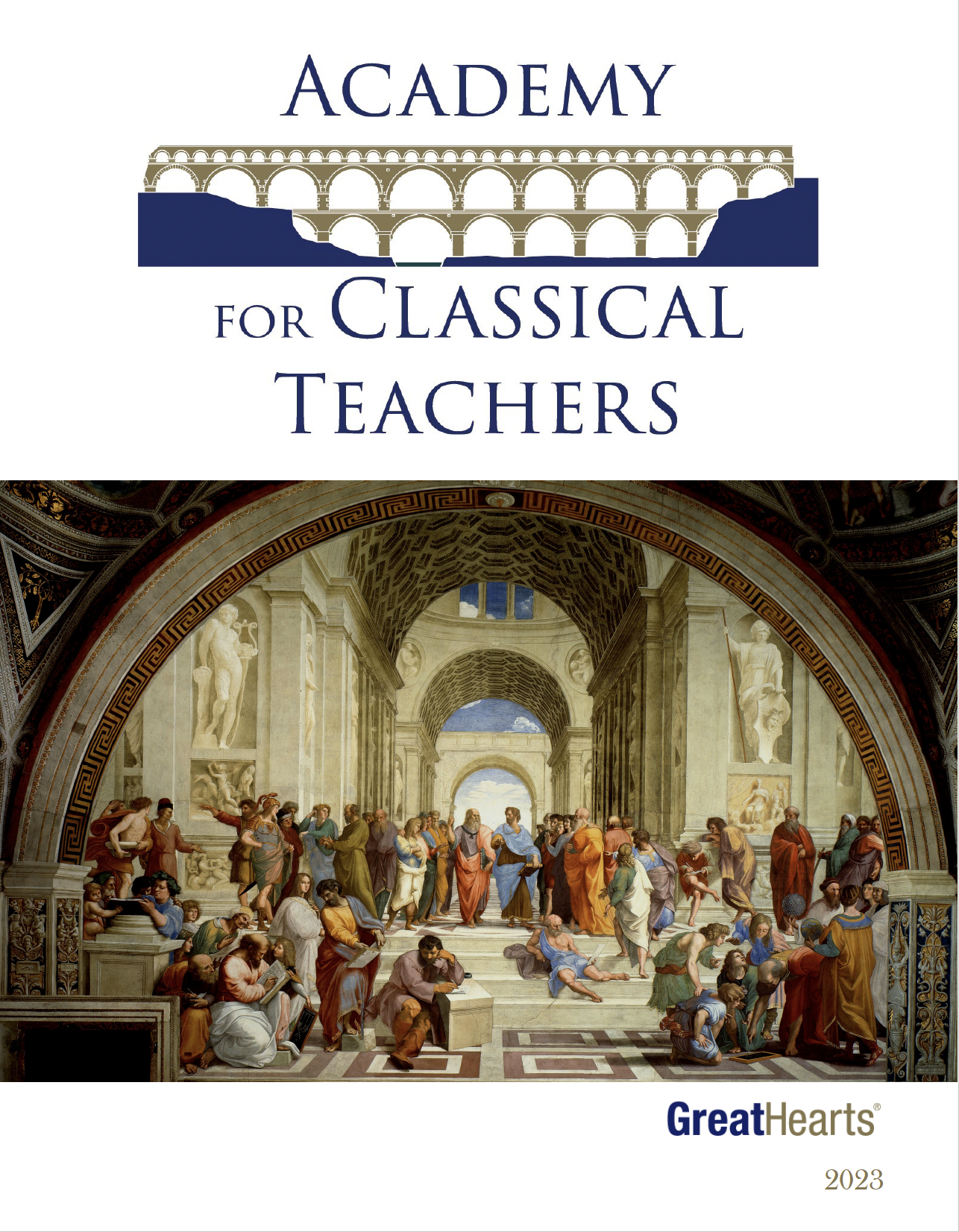Welcome to the Academy for Classical Teachers
 The Academy for Classical Teachers (ACT) provides online enrichment for classical teachers who seek to teach in their classrooms according to the principles of a traditional Liberal Arts Education. ACT is a collaborative initiative of Great Hearts Academies and our partner institutions in both higher education and classical K-12. This year’s courses are designed to help teachers dive deeply into content, with an eye toward both theory and practice. Faculty are drawn from our friends in higher education, expert teachers, and scholars who have chosen to teach within the public K-12 arena because of the unique opportunities it affords.
The Academy for Classical Teachers (ACT) provides online enrichment for classical teachers who seek to teach in their classrooms according to the principles of a traditional Liberal Arts Education. ACT is a collaborative initiative of Great Hearts Academies and our partner institutions in both higher education and classical K-12. This year’s courses are designed to help teachers dive deeply into content, with an eye toward both theory and practice. Faculty are drawn from our friends in higher education, expert teachers, and scholars who have chosen to teach within the public K-12 arena because of the unique opportunities it affords.
For further questions, please email the Academy Director, Dr. Paul Weinhold at paul.weinhold@greathearts.org